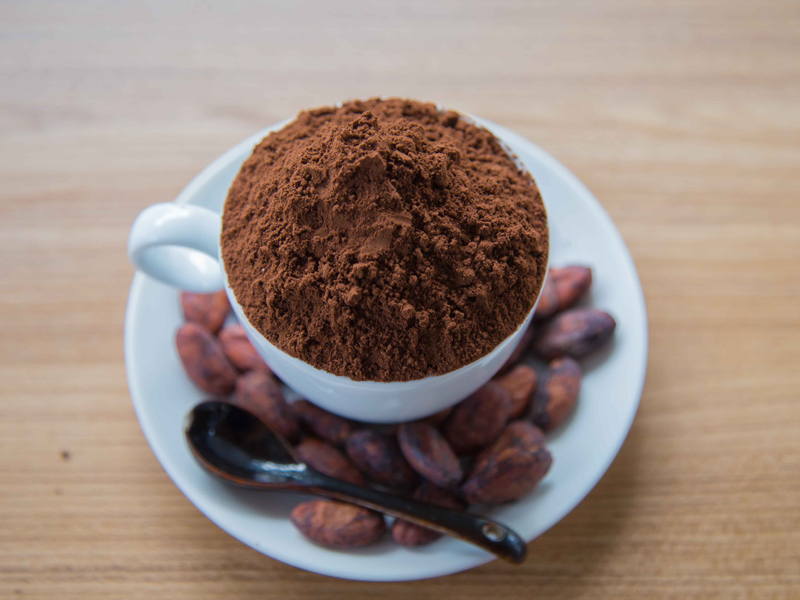High blood pressure and arterial stiffness can increase the risk of heart disease and stroke in humans. Symptoms of low blood pressure include dizziness, lightheadedness, rapid heartbeat, fatigue, etc. In the long term, this condition can affect daily life and become worse if there is no diet and timely and proper treatment.
Recently, a research team from the University of Surrey (UK) began investigating the effects of flavanols in cocoa on reducing blood pressure and arterial stiffness. The study was published in the journal Frontiers in Nutrition and was conducted on 11 healthy people. Over the course of 8 days, each person was assigned to take 6 capsules containing flavanols from cocoa or 6 placebo capsules containing only brown sugar. Participants were provided with an upper arm blood pressure monitor, finger clip to measure pulse wave velocity (PWV) to measure the stiffness of the arteries. The scientists asked each person to measure their blood pressure and PWV at three points: before taking the drug, every 30 minutes for the first 3 hours after taking the drug, and every 60 minutes for the next 9 hours.
The results of the study showed that blood pressure and arterial stiffness only decreased in participants if they were high. In addition, they had no effect when blood pressure was low in the morning. However, the scientists found that improvements in blood pressure and arterial stiffness were still seen 8 hours after taking the cocoa-containing capsule. They believe that this benefit may be due to the way bacteria in the gut metabolize flavanols from cocoa.
"The positive effects of flavanols in cocoa on the cardiovascular system are undeniable, especially on vascular function and blood pressure. Because cocoa is a powerful antioxidant. Therefore, consuming cocoa can be a potential treatment for people with mild hypertension, helping blood circulate more easily," said Christian Heiss, Professor of Cardiovascular Medicine at the University of Surrey. However, Professor Christian Heiss recommends the use of cocoa in daily life. According to him, if you want to use cocoa in food or drinks with the goal of reducing blood pressure, you need to balance the ingredients used; especially milk or condensed milk. In addition, cocoa is the main ingredient in chocolate. Therefore, users should choose dark chocolate because they contain a lot of cocoa.

Other benefits of cocoa
In addition to its positive effects on the cardiovascular system, cocoa also has many other attractive benefits.
Improve blood flow to the brain: Some studies have found that polyphenols in cocoa can reduce the risk of neurodegenerative diseases by improving brain function and blood flow. According to scientists, the amount of flavanols can cross the blood-brain barrier, participating in biochemical pathways that create neurons and important molecules for brain function. In addition, they also affect the production of nitric oxide, which helps relax the muscles of blood vessels; thereby improving blood flow and blood supply to the brain.
Improve mood: Cocoa has been studied to improve mood and symptoms of depression. The positive effects on mood may be due to flavanols. When entering the body, they will convert tryptophan into serotonin, helping to stabilize mood. In addition, the caffeine content in cocoa also helps evoke a feeling of enjoyment when eating.
A study on chocolate consumption and stress levels in pregnant women showed that women who regularly eat chocolate will help reduce stress and improve mood in newborns.
Support for people with asthma: Many studies show that cocoa is beneficial for people with asthma because cocoa contains anti-asthmatic compounds such as theobromine and theophylline. According to researchers, theobromine helps soothe the airways, reduce the risk of allergies and protect the body from the risk of lung cancer. Meanwhile, the active ingredient theophylline helps relax the airways and fight inflammation.
























